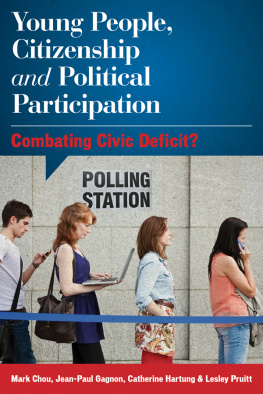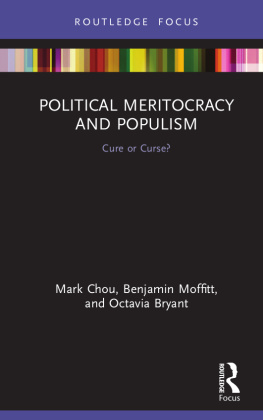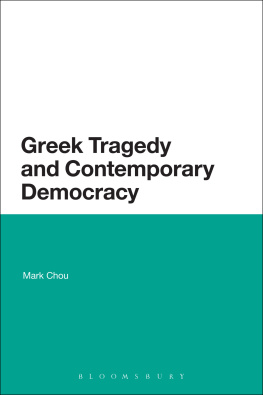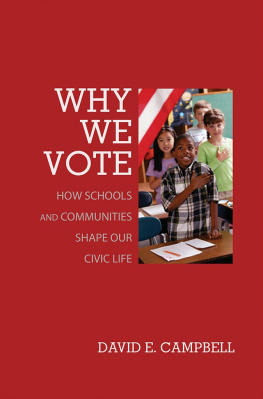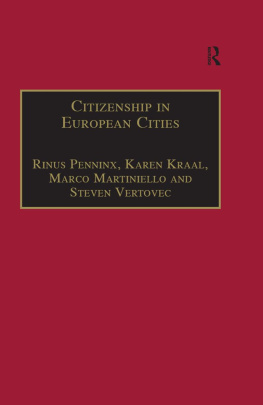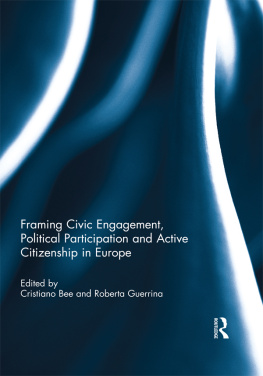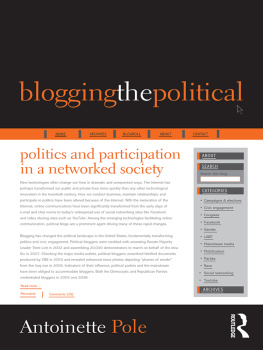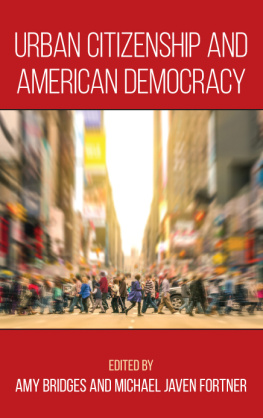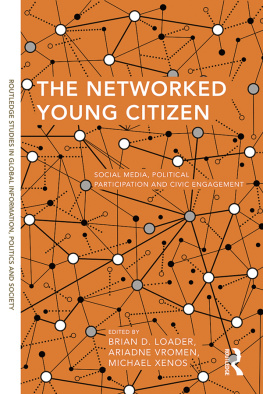Published by Rowman & Littlefield International Ltd
Unit A, Whitacre Mews, 26-34 Stannary Street, London SE11 4AB
www.rowmaninternational.com
Rowman & Littlefield International Ltd. is an affiliate of Rowman & Littlefield
4501 Forbes Boulevard, Suite 200, Lanham, Maryland 20706, USA
With additional offices in Boulder, New York, Toronto (Canada), and Plymouth (UK)
www.rowman.com
Copyright 2017 by Mark Chou, Jean-Paul Gagnon, Catherine Hartung and Lesley J. Pruitt
All rights reserved. No part of this book may be reproduced in any form or by any electronic or mechanical means, including information storage and retrieval systems, without written permission from the publisher, except by a reviewer who may quote passages in a review.
British Library Cataloguing in Publication Data
A catalogue record for this book is available from the British Library
ISBN: HB 978-1-7834-8993-0
PB 978-1-7834-8995-4
Library of Congress Cataloging-in-Publication Data Available
ISBN: 978-1-78348-993-0 (cloth: alk. paper)
ISBN: 978-1-78348-995-4 (pbk.: alk. paper)
ISBN: 978-1-78348-994-7 (electronic)

The paper used in this publication meets the minimum requirements of American National Standard for Information SciencesPermanence of Paper for Printed Library Materials, ANSI/NISO Z39.48-1992.
Printed in the United States of America
Mark Chou, Jean-Paul Gagnon, Catherine Hartung and Lesley J. Pruitt
WHAT IS THIS BOOK ABOUT AND WHY HAVE WE WRITTEN IT?
Young People, Citizenship and Political Participation: Combating Civic Deficit? is about the politics, citizenship and political education of young people in three Anglo-American democracies: the United States, the United Kingdom and Australia. We decided to focus on these democracies because they have each, especially in recent years, been claiming that there is a civic deficit among their young and because each country has tried to combat this deficit by renewing their civics education programmes. The central focus for policymakers and civics experts has been civics education in K12 schools and the consistent inability of civics curricula to produce active, politically knowledgeable citizens who are wedded to the principles of democracy and who trust government, political parties, politicians and political institutionsor public authority more broadly.
Of particular concern among certain authority figures is a perception that young people are not participating politically, or that they are doing much less of this than older generations. It is this perception which has led in recent decades to the claim that young peoples disengagement from politics, civic duty and the principles of democracy is leading toor is already causinga crisis of democracy.
This logic, although appealing to certain mass media outlets and authority figures (which might help to explain why it has endured for so long despite its problems), has been heavily critiqued by academics for decades. What, to offer a few exemplar questions from this literature, is meant by young people? Which civic duties and forms of citizenship are authorities advancing in one or more iterations of civics education? Why is political participation seemingly limited to voting, joining political parties, legal petitioning and the indirectness of representative democracy? What is a civic deficit and how is civics education meant to combat this? Our book poses questions of similar tenor and contributes to this tradition of enquiry.
That said, we felt compelled to write the book because we wanted to explore a paradox in the literature. On the one hand are the claims that many young people are disengaging from politics and that this is bad for democracy and on the other hand are the claims that many young people are engaging politically in or through their disengagement from conventional politics and that this is good for democracy. How can it be that these young people are both simultaneously bad and good for democracy? Does this affect citizenship? And what, if any, implications might this have for civics education today? We wanted to answer these questions, to dive in to the literature from our own points of scholarly expertise, to share with each other the evidence and arguments we have come across and to collectively write a book that will hopefully provide philosophical and policy insights into a discussion that is somehow both old and new.
WHAT IS DIFFERENT ABOUT THIS BOOK?
Writing Young People, Citizenship and Political Participation together gives this book an interdisciplinary character. Although we are each interested in young people, political participation, citizenship, civics education and democracy, and each of us comes from a social scientific background, we also have our own distinct research programmes. These colour the way we view the evidence and arguments upon which this book rests. Mark Chous work has in recent years been interrogating certain large N surveys, like Australias Lowy Institute Poll, and the claims these surveys have been making about the erosion of young peoples faith in democracy. These different research interests combine in this book. We feel that it is this combination of interests that gives Young People, Citizenship and Political Participation its interdisciplinary character.
Another feature of this book, and something that is especially evident in the chapters to follow, is its emphasis on pluralism. Young people, democracy, citizenship, political participation and civics education are each understood as concepts that are plural in nature. This is what led us to argue that young people are often still being essentialised both in the literature that claims they are disengaged and in much of the literature that claims they are politically active. For instance, many scholars still speak of young people as if they are a homogenous mass or of young people in binary termsas either, or both, politically inactive and politically active. This demographic is far more diverse than much of the literature seems to suggest. There are many ways of understanding young people, democracy, political participation, citizenship and civics education. Our openness to, and engagement with, this pluralism affects the way we perceive issues like the supposed crisis of democracy that Anglo-American democracies are said to be experiencing or how young people are disengaging from/engaging in politics or how civics education can be reformed.
Our recognition of the pluralist nature of the main concepts in this book led us to recommend that policymakers and civics experts take up a particular form of co-design practicea prescriptive point with which this book closes. We recognise that young people and their political practices are diverse, that there are many conceptions of democracy being practiced within the United States, the United Kingdom and Australia, that civics education has numerous iterations which carry with them their own (sometimes competing) normative values and pedagogical practices and that there is not just one form of citizenship but many forms of being a citizen, or a democrat, or just a person who happens to be living in a democracy. This sea of possibilities led us to ponder which policy design method might lead to a civics education that consistently reflects this pluralityand a civics curriculum that is meant to explore and debate different iterations of democracy, political participation, citizenship and civics education. This could be a type of schooling that might even lead young people and authority figures to come up with policy recommendations for pressing public issues together. This is why we settled on proposing co-design as a tool for policymakers and civics experts to use. We feel that this prescription is one of this books more important features.

 The paper used in this publication meets the minimum requirements of American National Standard for Information SciencesPermanence of Paper for Printed Library Materials, ANSI/NISO Z39.48-1992.
The paper used in this publication meets the minimum requirements of American National Standard for Information SciencesPermanence of Paper for Printed Library Materials, ANSI/NISO Z39.48-1992.
